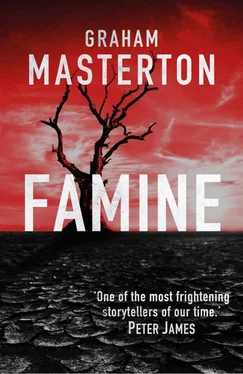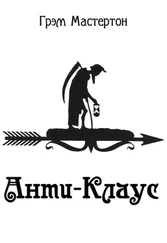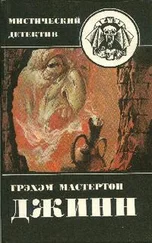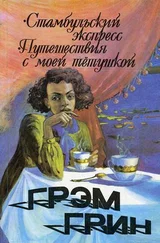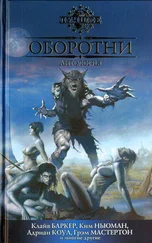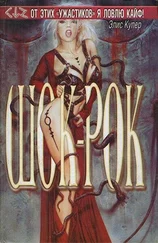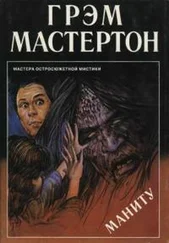Ed’s muscles tensed up like an overwound clock. ‘Yes,’ he said tightly. ‘What of it?’
‘Nothing,’ smiled Peter, circling the room with his hands still propped on his hips. He looked very pleased with himself. ‘Nothing that needs to worry you at all if you say what we want you to say at the Congressional inquiry.’
Ed stalked across and grabbed Peter’s shirt, twisting it around in his fist. ‘Don’t you tell me nothing,’ he said, fiercely. ‘Not where my wife and daughter are concerned.’ Peter lifted his face with complete arrogance, as if he were challenging Ed to hit him.
‘All right,’ he said. ‘Your wife and daughter are being watched by a private detective.’
‘Why? What the hell good will that do?’
‘It will make you say what we want you to say. That’s all.’
‘Why? Come on, Peter, spit it out! Why?’
Peter tugged his shirt collar free. ‘Because whenever Shearson says so, the private detective will do just a little more than keep an eye on your wife and daughter. He’ll follow them to a conveniently quiet spot, and blow their brains out.’
Ed gave Peter a disbelieving frown. ‘Now you’re kidding,’ he said. ‘Now I definitely know that you’re kidding.’
‘You think so? You want to try me?’
‘For Christ’s sake, you’re talking about murder! Even Shearson Jones isn’t into murder!’
‘You think I’m joking? You want to try me out? You’re always welcome. Your wife and kid don’t mean anything to me.’
Ed seized Peter’s shirt again, and this time he ripped it down the front. ‘By God,’ he said, ‘if you’re serious, if you really mean what you’re saying, I’m going to take you apart!’
Peter pushed him away again. He was still smiling. ‘I’m serious all right,’ he said. ‘I made all the arrangements last night, as soon as you’d blurted out that broadcast of yours. You managed to outmanoeuvre Shearson Jones just once, my friend, but you can be damn sure you’ll never be able to do it again.’
Ed felt as if his chest was the inside of a steam-kettle, scalded with high-pressure emotions that he couldn’t let out. His fists were clenched, and he could have happily, needfully, punched Peter Kaiser straight in the nose. But he was beginning to learn that it didn’t pay to assault Peter Kaiser face to face. Peter Kaiser was made out of nothing but obedient shadows, and devious turns of phrase. It was Shearson Jones that Ed was after, and if you wanted to play it tricky with Shearson Jones you had to be smart, and quick, and you had to make doubly certain that you’d arranged yourself a way out, as well as a way in. This wasn’t the little league any more.
Ed walked across to the drinks cabinet and unscrewed the Johnny Walker. Through the wide-open french windows, he could see Fall River Lake glittering with evening phosphorescence. The smattering of stars that hung suspended above the hills gave no astrological clues at all to the violence that had swept across America in the past twenty-four hours; nor to the violence that would follow. The breeze stirred the drapes, and chilled the sweat on Ed’s forehead.
‘Well?’ asked Peter Kaiser.
‘Well?’ repeated Ed. ‘What do you want me to tell you? That from now on. I’m going to toe the line? That I love Shearson Jones?’
‘You want to talk to your wife and kid on the telephone?’ asked Peter. ‘You can if you like.’
‘What do you want me to tell them?’
‘Tell them whatever you want. This is a free country.’
‘Can I tell them they’re going to be shot?’
‘They won’t be. Not if you do what you’re told.’
Ed tipped back his whisky in one swallow. Peter watched him with a fixed expression of false good humour. ‘Getting yourself drunk won’t solve anything,’ Peter said.
Ed wiped his mouth with the back of his hand. ‘I’m not drinking this to get drunk. I’m drinking it as an antiseptic.’
At five o’clock CBS News began to bring reports from London that all passenger flights from the United States had been held on the runways at Heathrow Airport without the passengers being allowed to disembark. There had been four hours of ‘crucial discussions’ between Her Majesty’s Foreign Office and the State Department, and eventually the passengers had been allowed to leave the aircraft, but only to assemble in the departure lounges, and not to pass through Customs.
By nine o’clock, all flights to England from the United States had been cancelled, and by seven o’clock all flights to destinations in Europe, Scandinavia and the Middle East had been wiped off the board, too. In London, more than 2000 Americans were reboarded on to their aircraft, and sent straight back to the United States – despite the fact that many of them had left America before the riots of Sunday night.
Lord Carey, the British Foreign Secretary, said that ‘much as I regret the course of action we have had to take in relation to United States citizens arriving in the United Kingdom, it is apparent that the tragic events of the past twenty-four hours would have led many of them to seek to stay in the United Kingdom indefinitely… And while I wish to the bottom of my heart that we had the facilities and the finance to cope with a massive influx of American refugees… the fact remains that we have not… and therefore with the understanding of the President, we have regretfully been obliged to turn away, for the time being, any United States citizen who arrives at a British port of entry.’
Germany, France, Holland, and the rest of the EEC countries quickly followed the British example. They were all sorry. They all spoke of their regret. But even ‘special relationships’ could not overcome the impossibility of accepting refugees who might eventually arrive from the United States in their tens of millions.
Watching the television in his room, Shearson Jones said to Peter Kaiser, ‘Don’t you ever wonder why we fought for those sons-of-bitches at all? I mean, don’t you wonder?’
*
But as Monday drew to a close, there were more important questions than that, and they were still unanswered. The looting and the arson had been so devastating that most of the networks had forgotten why they started at all, and nobody was asking if the threat of a famine was real, and how serious it was, and what the President was going to do about it.
Of course, nobody in the administration had yet been told about the Abbott family, of Portales, New Mexico. And nobody had yet been officially told about the isotope that Square had found in the grain elevator in St Louis.
And that was one of the reasons why the Duncan family, of Willingboro, New Jersey, sat around their kitchen table that evening for a supper of canned salmon and salad without any feelings but feelings of family closeness and good appetite, and gratefulness to the Lord for providing their daily sustenance. There were four of them – Emmett Duncan, a telephone engineer, his wife Dora, and their two daughters, Jenny and Kate. If you had asked any of them what Clostridium botulinum was, they wouldn’t have been able to tell you. But the salmon they ate that night was swarming with it.
It was two o’clock on Tuesday morning when Ed was awakened by someone shaking his shoulder. He thought he was still dreaming at first – a strange airless dream of waiting in a funeral parlour for the body of his father to arrive – and he struck out with his left arm and hit Della on the side of the head. She seized his wrist and said, ‘Quiet. I don’t want to wake up the Muldoons.’
Ed rolled over and sat up in bed. He’d been drinking for most of the afternoon, and his mouth tasted as if he’d been chewing alfalfa seeds. Della was wearing an emerald green silk wrap, and she smelled of Paco Rabanne. ‘What’s the matter?’ Ed asked her, frowzily. ‘Couldn’t you just have slipped into bed?’
Читать дальше
